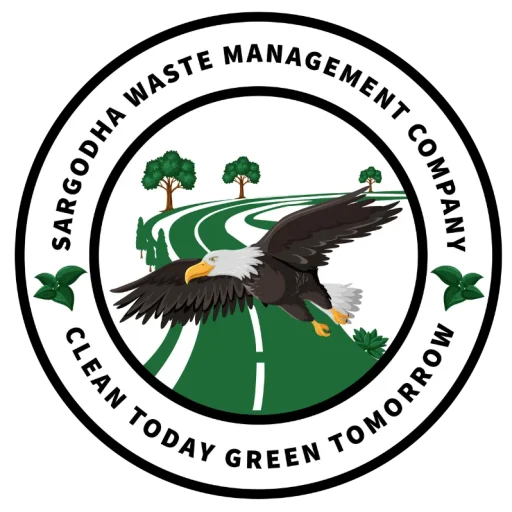Sargodha Waste Management Company (SWMC) – Strategic Plan
Vision and Mission
Vision: To transform Sargodha into a clean, green, and sustainable city through efficient and innovative waste management practices.
Mission: To provide cost-effective, environment-friendly, and citizen-centric solid waste management services.
Core Objectives
Ensure 100% waste collection and safe disposal.
Promote environmental sustainability and public health.
Engage communities through awareness and participation.
Establish a transparent, accountable, and efficient operational system.
Key Strategic Areas
Waste Collection and Transportation
Daily waste collection across all urban and peri-urban zones.
GPS tracking of waste collection vehicles.
Route optimization for efficiency and fuel saving.
Waste Segregation
Establish Material Recovery Facilities (MRFs).
Promote household-level waste segregation (organic, inorganic, recyclable).
Partner with recycling industries for circular waste economy.
Transparent reporting to stakeholders and the public.
Monitoring, Evaluation, and Compliance
Monthly KPIs and performance reviews.
Third-party audits and environmental assessments.
Waste Disposal and Landfilling
Develop engineered sanitary landfill sites.
Close and rehabilitate illegal dumping points.
Monitor environmental compliance and leachate control.
Public Awareness and Community Engagement
School programs and citizen outreach campaigns.
Use of social media, local influencers, and awareness drives.
Establish complaint redressal systems and feedback loops.
Innovation and Smart Waste Solutions
Adopt smart bins and IoT-based waste monitoring.
Use of digital dashboards for performance tracking.
Encourage R&D and pilot projects for waste-to-energy.
Capacity Building and Human Resource Development
Regular training programs for field staff and management.
Introduce performance-based incentives.
Foster a culture of safety, discipline, and professionalism.
Partnerships and Stakeholder Collaboration
Collaborate with local government, NGOs, and private sector.
Encourage Public-Private Partnerships (PPPs).
Participate in national and international waste forums.
Financial Sustainability
Develop a cost-recovery model.
Explore donor funding and CSR opportunities.
Implement waste collection fee mechanisms for industries and commercial zones.

